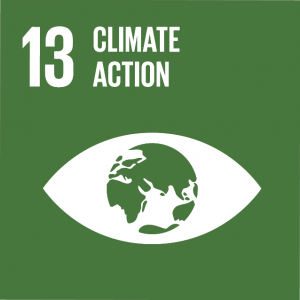The planet we live on has undergone rapid environmental change in recent decades and there is not one single country that has not experienced the consequences of this change. Whilst there are a range of factors that will contribute to climate changes, the increase of around 1.0°C above pre-industrial levels is specifically attributable to the activity of human beings.
Since the late 19th century, sea levels have risen by around 20cms with a further rise of at least 30cms by 2100 anticipated. Total global emissions of CO2 would need to be reduced in the region of 40-45% by 2030 in order to realistically achieve net 0% in 2050. Even then, this would only limit the rise to an increase of 1.5°C.
Accessible and affordable technological solutions will be required to enable nations to shed their reliance on the unsustainable forms of energy production that they have grown accustomed to using. This is not a bleak statement of failure though; this is a matter of fact that has driven huge collaborative activity across countries and institutions worldwide.
The Paris Agreement is an example of a significant landmark treaty intended to combat climate change and to focus the actions and financial commitment needed to bring about a sustainable and low carbon future. However, only 30% of the reduction in emissions needed to keep the world below 2.0°C are addressed by the Agreement.
At our university, we have recognised that we can take a more proactive approach and contribute to the reduction and eventual reversal of climate change. Collaborating with other universities and public bodies will also amplify the impact of our changing behaviours and accelerate the efforts we are all making.
Specifically, we are now procuring electricity from four separate offshore wind farms across the UK that will power our main teaching campus and our sports centre in the North of England. We have also taken advantage of a long-term agreement with the power providers, ensuring that we capture the best possible price stability in an uncertain economy. This show of commitment also supports those energy providers and helps solidify their viability as a growing contributor to the global energy market.
As well as supporting this sector with our procurement decisions, we will devote our resources to facilitating the additional human capital that is needed for success. Just in the global energy sector alone, there is expected to be around 18 million new jobs created by 2030 that will be directly dedicated to the development and production of sustainable energy. We will support that sector by continuing to train highly skilled students in our university that will go on to take up these jobs.
Being mindful of this will help up to achieve Global Goal number 13 – which requires us to actively focus our efforts to confront the reality that this is a changing world with a changing environment.
Climate related hazards are estimated to have claimed over 1.3 million lives in the period 1998 – 2017. There is simply no justifiable position that we can take that does not compel us to take significant and immediate action to address this.
We can endeavour to be a low carbon business, promote the use of sustainable energy sources and commit to work with suppliers that share this approach. Our targets to help us to meet this goal will require further cooperation with like-minded organisation but will include;
- Strengthening our resilience and ability to adapt to climate related hazards
- Improving educational awareness of climate change and impact mitigation
- Integrating climate change measures into polices, strategies and planning
- Raising our capacity to plan for climate change and seek to improve the effectiveness of early warning mechanisms
- Focusing on the needs of groups who are dis-proportionally more harshly impacted by climate change, such as the young, women and socially marginalised communities
If you wish to learn more about climate action, energy production and the university’s wider activities that are being introduced in order to address our environmental impact, please get in touch.
Further information on the impact of climate change and the efforts being taken to mitigate it can be found here;
https://www.un.org/en/sections/issues-depth/climate-change
https://www.unenvironment.org/explore-topics/energy/what-we-do/renewable-energy
Further information about the UN Global Goals can be found here;



